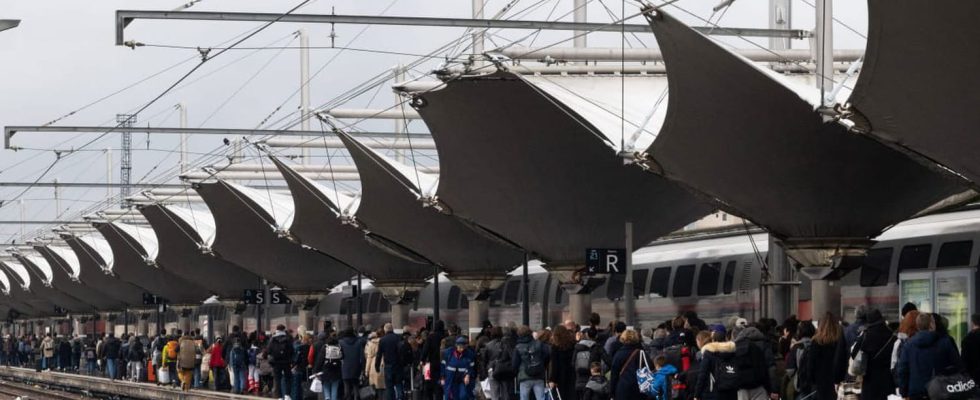50% of TGV, Ouigo and Intercités are expected to run this Sunday, February 18, due to a controllers’ strike. Traffic should be as disrupted as this Saturday, February 17.
Like Saturday February 17, train traffic will also be severely disrupted this Sunday February 18, while zone A begins its school holidays and there is still a week left in zone C. 1 TGV out of 2, 1 Ouigo out of 2 and 1 Intercités out of 2 will circulate. Many travelers have decided to travel differently thanks to alternatives such as buses or blablacar.
To notify users as early as possible, the SNCF sent an email or SMS to each long-distance traveler, to inform them whether or not their train will continue. In the event of cancellation, the SNCF advises you to have your ticket refunded: this process does not incur any costs. It is also possible to keep your ticket and change the date or trip. The SNCF also announced that it will make a commercial gesture: customers whose train has been canceled will receive a 50% reduction on their next journey, which can be used within the following 30 days.
In the middle of school holidays, the SNCF tried to favor maintaining journeys to places of leisure, like winter sports. This affects the cancellations on other lines: for example, 60% of trains are canceled between Paris and Bordeaux, but those going to the Alps are less impacted. Concerning lines going to Europe, traffic is also disrupted. 11 trains are canceled throughout the weekend, mainly on the Paris-Brussels and Paris-Amsterdam routes.
At the regional level, TERs will be less affected. Some lines will even have normal circulation, such as in Burgundy-Franche-Comté, where all TERs should circulate. If in doubt, it is advisable to go to the SNCF website and enter your train number there.
Concerning the next weekend of February 24 and 25, the Sud-Rail union has filed a strike notice. The switchers could in turn step up to the plate. They denounce their working conditions and a lack of staff.
